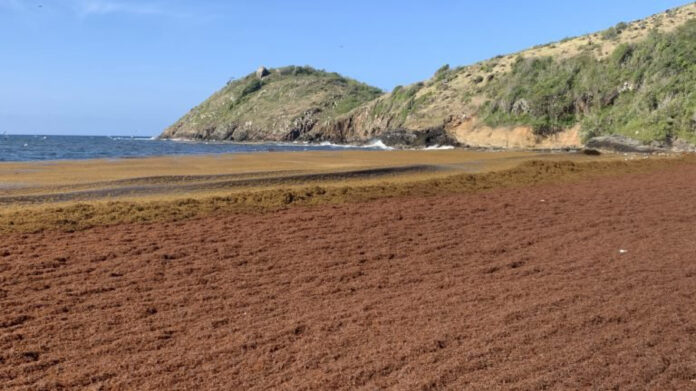Antigua and Barbuda is one of several countries that have been put on notice to brace for record-breaking levels of sargassum piling up on their shores this year.
The country is among several others across the Caribbean that have had to deal with the pungent odour released by the dying seaweed. This has caused concern for tourism and marine life for about a decade as sargassum produces sulphureous gases, deterring tourists and local beachgoers and could destroy appliances as well.
Animals can also be killed due to the volume the seaweed which washes up and accumulates on the shoreline.
Marine Ecologist Ruleo Camacho predicted in March that this year’s influx would depend on the summer’s weather patterns.
He told Observer that the worries of scientists across the region are matching previously indicated expectations.
“We have been slightly fortunate for the first part of the year that the brunt of the sargassum has been keeping south, so while the quantity of sargassum in the Western Atlantic Caribbean region has been extremely high, Antigua and Barbuda for the most part except for the last couple of weeks got away from the brunt of the beaching activity.
“Unfortunately, this is likely to remain that way. We will continue to see increasingly large amounts over the next couple of months,” he said in an interview.
Camacho advised that, based on satellite imagery, there are still large floating beds of seaweed approaching the island from the east that will last for months upon arrival.
“Even if we see a decline in the overall amount of sargassum being recorded, we will likely see a continuation of beaching events arguably until the months of October/November. Again, this is very variable, we could very well have a storm that helps to dissipate some of the sargassum but it is something we will most likely have to deal with going forward,” he added.
In 2018, Antigua and Barbuda recorded its worst year to date resulting in several hotels being forced to close due to piles of seaweed covering along entire stretches of beaches.

